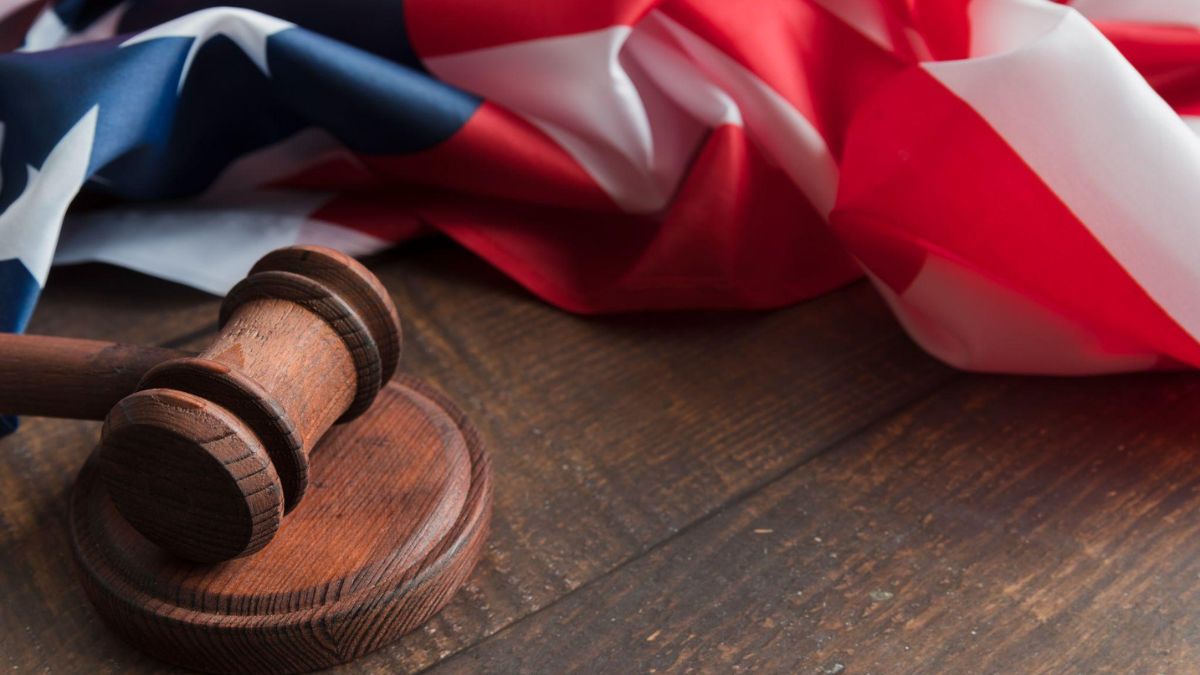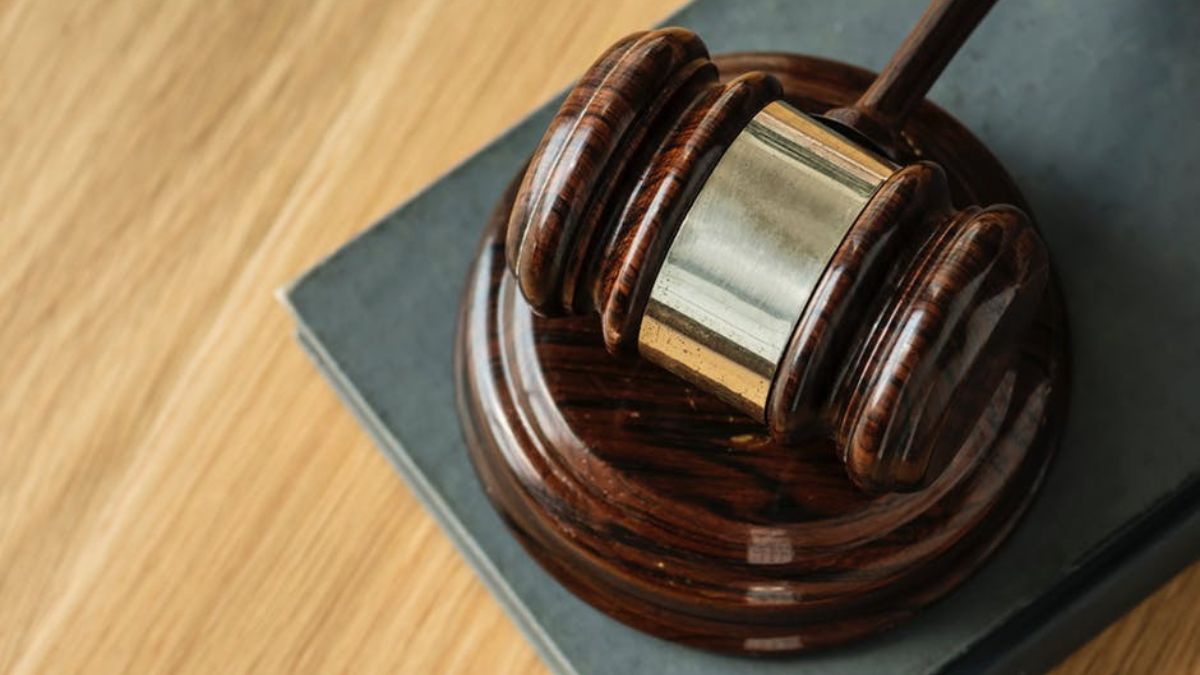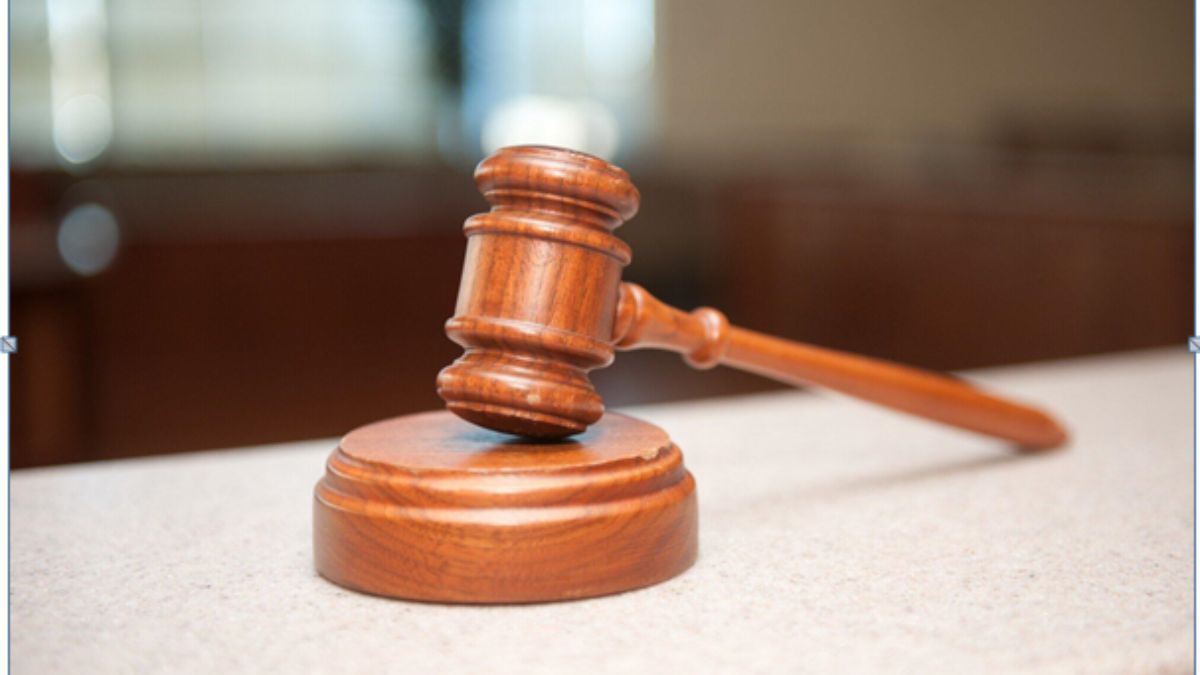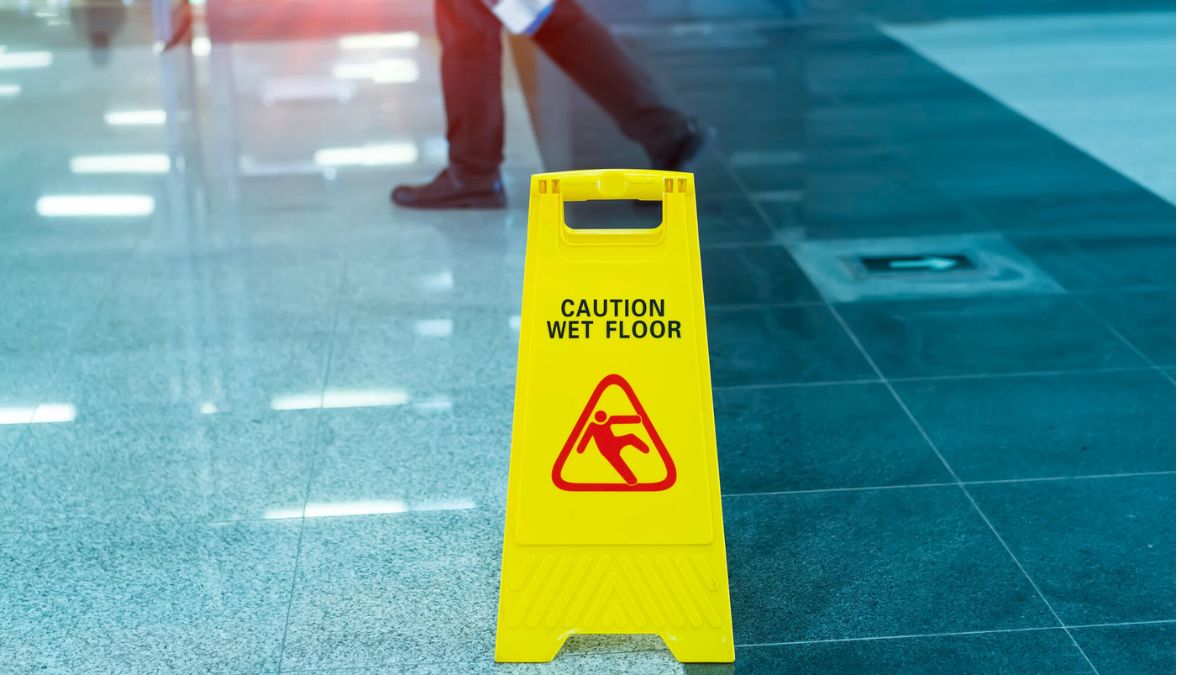LAW
The Battle for Jury Trials in Camp Lejeune Lawsuits

The Camp Lejeune water contamination scandal represents a dark period in American military history. Between 1957 and 1987, the Marine Corps base in North Carolina unknowingly exposed residents to contaminated drinking water. It was laced with toxic chemicals such as trichloroethylene (TCE) and perchloroethylene (PCE). These chemicals have been related to a range of health complications, such as birth-related issues, cancer, and neurological impairment.
In response to this tragedy, the Camp Lejeune Justice Act of 2022 was enacted. Under this Act, the affected group can sue the government for compensation. However, a new battle has begun: the fight for jury trials in these lawsuits.
The Right to a Jury Trial: A Fundamental Tenet of Justice
Jury trial rights are essential to the U.S. legal framework. They ensure that citizens’ cases are heard by a jury of their peers and not just a judge.
The plaintiffs at Camp Lejeune argue that this right extends to their cases under the Seventh Amendment of the Constitution. They believe that a jury made up of ordinary citizens is best suited to understanding the suffering of the contamination. Such a jury can further render a fair verdict.
The Government’s Position: Efficiency Over Jury Trials
The US Department of Justice (DOJ) opposes jury trials in these cases. They argue that the Camp Lejeune Justice Act doesn’t specifically allow for such provisions.
Judge-only trials would be more efficient in dealing with the anticipated high volume of litigation. The DOJ emphasizes the importance of expediting the claims process so that victims can receive compensation as soon as possible.
A Compromise Not Achieved: The February 2024 Decision
In February 2024, a panel of federal judges in the Eastern District of North Carolina sided with the Department of Justice. They ruled that jury trials would not be available in lawsuits due to the Act’s lack of explicit language. This decision sparked disappointment and outrage among veterans, their families, and their legal representatives.
Plaintiffs Fight Back: Appeals and Continuing Arguments
Plaintiffs are appealing a February 6, 2024, decision that rejected jury trial requests under the Camp Lejeune Justice Act. They believe this raises a key legal issue about their right to a jury trial. They argue that an appeal could streamline the legal process, conserving resources for both the court and the parties involved. They further argue that the Act grants them “appropriate relief”, which they interpret to include the right to a jury trial.
Beyond Efficiency: The Emotional and Symbolic Significance of Juries
The fight for jury trials extends beyond efficiency concerns. For many victims, having their case heard by a jury has profound emotional and symbolic significance. A jury trial allows them to tell their stories in front of a group of empathetic citizens. A jury verdict in their favor would provide validation and accountability for the government’s negligence.
The Long Road Ahead: Uncertainties and Possible Outcomes
The CLJA lets veterans and families exposed to contaminated water between 1957 and 1987 sue for health problems. The PACT Act expands VA healthcare for these veterans exposed to toxins. However, the legal fight for jury trials in the Camp Lejeune water contamination lawsuit is far from over. The process to appeal could take months or years to complete.
Meanwhile, TorHoerman Law notes that judge-only trials may proceed, potentially leading to settlements before verdicts are reached. For legal advice on Camp Lejeune claims, consult with experienced attorneys who specialize in veterans’ rights and water contamination lawsuits.
Frequently Asked Questions About The Camp Lejeune Water Contamination Lawsuit
1. Am I eligible to file a Camp Lejeune lawsuit?
You are eligible only if you worked or lived at the site of Camp Lejeune for a minimum of 30 days. It has to be between 1957 and 1987. You should also have a health condition associated with the contaminated water. Possible groups include veterans, family members who lived on base, and even people who were exposed in utero.
2. What types of compensation are available in a Camp Lejeune lawsuit?
The compensation amount varies according to the severity of your illness. It may cover medical bills, suffering, and lost wages.
3. Is there any specific deadline for applying for the Camp Lejeune lawsuit?
Yes, there is. The Camp Lejeune Justice Act of 2022 has given a two-year timeframe for filing the lawsuit. The deadline is 10th August 2024.
4. Will my Camp Lejeune case proceed to jury trial?
Currently, there is no clear answer. The courts are still deciding whether jury trials will be allowed in these cases. The Department of Justice advocates for judge-only trials, while plaintiffs seek jury trials as a right.
Looking Ahead: Transparency, Accountability, and Justice
Regardless of the outcome of the jury trial debate, maintaining transparency for the events at Camp Lejeune is critical. Victims deserve a fair and just resolution. Whether through jury verdicts or settlements, the Camp Lejeune water contamination crisis continues to demand an answer.
LAW
Navigating the Process of Obtaining a Personal Recognizance Bond

Finding your way through the journey of securing a personal recognizance bond can feel like wandering through a maze. This process, which allows individuals to be released from custody without having to pay bail upfront, involves several steps that can be confusing and overwhelming.
Understanding the essentials can make it a lot easier. Here are some key points to guide you along the way, ensuring you stay informed and empowered throughout the experience.
Understand Your Eligibility
To understand your eligibility for a personal recognizance bond, it’s important to know a few key points. First, not everyone can get this type of bond; it often depends on your criminal history, the type of charges you face, and whether you are likely to return for your court dates.
Courts want to see that you have ties to the community, such as a stable job or family, which can show you will not run away. By focusing on these factors, you can get a better idea of your chances and follow the legal steps to secure your bond successfully.
Gather Necessary Documentation
To get a personal recognizance bond, you need to collect some important papers that meet court requirements. This may include proof of your identity, such as a driver’s license or passport, and documents showing where you live.
You might also need to show proof of your job or income, like pay stubs or a letter from your employer. Having these papers ready can help the court understand your situation better and improve your chances of getting the bond. Be sure to check what specific documents the court needs, as this can vary by location.
Attend a Bail Hearing
Once you have your documents ready, the next step is to attend a bail hearing. This is a meeting where a judge will decide if you qualify for a personal recognizance bond. At the hearing, you will have the chance to explain your situation and show why you deserve the bond.
It is important to present yourself well and answer any questions the judge may ask. If you’re worried about costs, you can also explore options like cheap bail bonds to help with any expenses related to your case.
Await the Judge’s Decision
After you attend the bail hearing, you will need to wait for the judge to decide on your personal recognizance bond. This can feel like a long wait, but it’s important to stay calm. The judge will look at all the information you and your lawyer provided and decide if you should be allowed to go home without paying bail.
You will usually be informed of the decision soon after the hearing. If the judge approves your bond, you will get the chance to leave the court and prepare for your upcoming court dates. If not, your lawyer can help you understand what to do next.
Learn More About Personal Recognizance Bond
In conclusion, getting a personal recognizance bond can be simple if you follow the steps. Know if you are eligible and gather the right papers. Attend the bail hearing and explain your case to the judge.
Then, wait for the judge’s choice on your bond. With the right information, you can handle this process better. Remember to stay calm and seek help if you need it.
Visit our blog for more!
LAW
6 Things to Look for in an Assault Attorney: Expert Tips

Choosing the right assault attorney can be overwhelming. With so many options, how do you decide?
It’s crucial to find an expert who can handle your case with skill and compassion. This blog post will guide you through the six key things to look for in an assault attorney. From experience to communication skills, these tips will help you make an informed choice.
Here are six essential qualities to consider when choosing an assault attorney.
1. Experience Matters
When choosing a defense attorney, experience is essential. An attorney with years of practice is more likely to know the ins and outs of the legal system. They can use this knowledge to build a stronger case for you.
An experienced attorney also knows how to deal with judges and prosecutors. They can anticipate the other side’s moves and plan accordingly. This can often make the difference between winning and losing your case.
2. Expertise in Personal Injury Law
Finding an attorney who specializes in personal injury law is crucial. These attorneys understand the nuances of cases like yours. They know how to gather proof and present it effectively.
At David R. Price Jr., P.A., they help good people who find themselves in trying circumstances find justice through zealous and determined legal representation. An assault attorney should have strong expertise in personal injury law. This ensures they understand the complexities involved and can fight for your rights.
3. Strong Track Record
A strong track record is vital when choosing an injury attorney. Look for attorneys with a history of winning cases similar to yours. This can give you confidence in their ability to represent you effectively.
Check client reviews and testimonials to gauge their success rates. An attorney’s past performance can predict future results. A proven track record means they know what it takes to win.
4. Excellent Communication Skills
An attorney needs excellent communication skills. They should explain legal terms in a way you can understand. Clear communication helps you stay informed about your case.
Good communication also means they listen to you. An attorney who listens can better understand your needs and concerns. This allows them to represent you more effectively in court.
5. Accessibility
Accessibility is important when choosing a lawyer. Your lawyer should be easy to reach when you need them. Quick responses to calls or emails can make a big difference.
Also, consider their location. An attorney who is nearby can meet you in person more easily. Face-to-face meetings can build trust and understanding.
6. Affordability
Lastly, consider the fees charged by the law firm handling your case. Legal representation need not drain your resources completely; affordability does not mean subpar service quality.
Choose a law firm that offers competitive pricing options without compromising on the quality of service provided. This will give you peace of mind knowing that your case is in good hands without breaking the bank.
Choose the Right Assault Attorney for Your Case
Choosing the right assault attorney is crucial for ensuring the best possible outcome for your case. An experienced specialized lawyer with a strong track record, excellent communication skills, and easy accessibility will provide the support and representation you need.
Affordable services are equally important, so do your research and make an informed decision. The right assault attorney can make all the difference in achieving a favorable verdict.
Did you find this article helpful? Visit more of our blogs!
LAW
The Legal Process for a Compensable Injury in a Slip and Fall Accident

Navigating the legal process for a compensable injury in a slip and fall accident can be challenging. Understanding your rights is important. If you are injured, you may be entitled to compensation.
This blog will guide you through each step of the process. From gathering evidence to filing a claim, we will cover it all. We’ll also discuss common pitfalls and how to avoid them.
Whether you are a victim or just curious, this information could be crucial. Stay tuned for a clear roadmap to your potential compensation.
Gathering Evidence
The first step in the injury compensation process for a slip and fall accident is gathering evidence. This includes documenting the scene of the incident, taking pictures of any injuries, and obtaining witness statements.
It’s important to gather as much evidence as possible to support your claim. Talk to any witnesses and get their contact information. Write down their statements about what they saw. The more evidence you have, the stronger your case will be.
Seeking Medical Treatment
After a slip and fall accident, seek medical treatment right away. A doctor will assess your injuries and give you a treatment plan. Make sure to follow their advice to avoid complications.
Keep all your medical bills and records from your visits. These documents are important for your claim. Proper documentation helps prove the extent of your injuries and the costs you incurred.
Consulting with a Personal Injury Lawyer
Consulting with a personal injury lawyer is a crucial step in securing compensation. A lawyer can help you understand your rights and guide you through the legal maze. If you need expert advice, you can visit Gibbons & Crichton slip and fall cases for comprehensive legal support.
A lawyer will evaluate your case and tell you its chances of success. They can help gather more evidence and build a stronger claim. Having a legal expert by your side can make the process smoother and less stressful.
Filing a Claim and Negotiating a Settlement
If your lawyer determines that you have a strong case, they will help you file a claim against the responsible party. This initiates the slip and fall lawsuit process. Make sure to file within the statute of limitations in your state.
After the filing, the negotiation phase begins. You and your lawyer will discuss settlement options with the insurance company. The goal is to reach a fair agreement that compensates you for your injuries and losses.
Going to Court
In some cases, a settlement may not be reached through negotiations. If this happens, your case may go to court. It’s important to have a lawyer by your side during this process to present and argue your case effectively.
Going to court can be intimidating, but with a strong legal team on your side, you can fight for the compensation you deserve.
Securing Your Rights for a Compensable Injury
In conclusion, understanding and navigating the legal process for a compensable injury in a slip and fall accident is vital. By gathering evidence, seeking medical treatment, consulting a personal injury lawyer, and possibly going to court, you increase your chances of securing fair compensation. Following these steps ensures you protect your rights and maximize your potential compensation for a compensable injury.
Did this article help you? If so, take a look at some of our other blog posts for more informative reads.
-

 ENTERTAINMENT1 week ago
ENTERTAINMENT1 week agoInside a Coomer Party: A Closer Look at this Growing Trend
-

 HOME2 weeks ago
HOME2 weeks agoExploring the Mystical World of Aoomaal: A Comprehensive Guide
-

 CRYPTO3 months ago
CRYPTO3 months agoUSDTCCK: The Rising Star in the World of Cryptocurrency
-

 HOME2 months ago
HOME2 months agoSandra Orlow: The Teen Model Who Captivated the Internet
-

 HEALTH3 months ago
HEALTH3 months agoThe Health Benefits of Avple: Why You Should Add it to Your Diet
-

 HEALTH2 weeks ago
HEALTH2 weeks agoKecveto: The Ultimate Superfood for Boosting Energy and Vitality
-

 BUSINESS1 month ago
BUSINESS1 month agoImportance of PCI DSS Compliance for Merchant Service Providers
-

 HEALTH2 months ago
HEALTH2 months agoIntegrating Semaglutide into Your Weight Loss Plan: A Practical Guide
